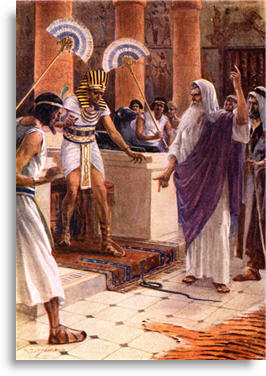 By Albert Mohler.
By Albert Mohler.Once a sexual revolution is set loose, it inevitably runs its course through the culture. While the current flashpoints of cultural conflict are focused on same-sex marriage and gender issues, others are biding their time. As Newsweek magazine makes clear, some new flashpoints are getting restless.
Polyamory, reports Newsweek, is having a "coming-out-party." Polyamory is the current "term of art" applied to "families" or "clusters" comprised of multiple sexual partners. As Newsweek explains, this is not exactly polygamy, because marriage is not the issue. Advocates of polyamory argue that their lifestyle is not "open marriage." Indeed, they define their movement in terms of the moral principle of "ethical nonmonogamy," defined as "engaging in loving, intimate relationships with more than one person -- based upon the knowledge and consent of everyone involved."
Legal theorists and opponents of same-sex marriage routinely (and rightly) make the argument that the legalization of homosexual marriage will, inevitably, lead to the legalization of polygamy. Once marriage is redefined to allow for same-sex unions, any determination to maintain legal prohibitions against polygamy will be seen as merely arbitrary. At the same time, once strictures against adultery were eliminated in the culture and in the law, something essentially like polygamy was inevitable.
The article in Newsweek, written by Jessica Bennett, presents polyamory as a growing movement that now involves persons in the cultural mainstream. As the magazine reports: "Researchers are just beginning to study the phenomenon, but the few who do estimate that openly polyamorous families in the United States number more than half a million, with thriving contingents in nearly every major city."
The movement now claims a number of recognized books, blogs, podcasts, and even an online magazine entitled "Loving More." According to Newsweek, actress Tilda Swinton and Carla Bruni, the First Lady of France, have emerged as prominent spokespersons for nonmonogamy. As should be expected, the Kinsey Institute for Research in Sex, Gender and Reproduction at Indiana University now features a "polyamory library."
Jessica Bennett suggests that the contemporary polyamory movement has roots in utopian movements of the 19th century:
The notion of multiple-partner relationships is as old as the human race itself. But polyamorists trace the foundation of their movement to the utopian Oneida commune of upstate New York, founded in 1848 by Yale theologian John Humphrey Noyes. Noyes believed in a kind of communalism he hoped would fix relations between men and women; both genders had equal voice in community governance, and every man was considered to be married to every woman. But it wasn't until the late-1960s and 1970s "free love" movement that polyamory truly came into vogue; when books like Open Marriage topped best-seller lists and groups like the North American Swingers Club began experimenting with the concept. The term "polyamory," coined in the 1990s, popped up in both the Merriam-Webster and Oxford English dictionaries in 2006.
In one sense, the polyamorous defy easy categorization. The movement includes couples who openly and with full knowledge of each other engage in sexual relationships with others. Some are involved in group sex and others experiment with bisexuality. The Newsweek article introduces readers to a new vocabulary. The most revealing word is "polyfidelitous" -- which means that the multiple partners keep sexual activity within their own self-identified cluster.
Interestingly, Bennett observes that the movement "has a decidedly feminist bent." If men can have multiple wives or female partners, then, the logic goes, women must have the same in order to achieve "gender equality." Bennett quotes Allena Gabosch, director of an organization known as the "Center for Sex Positive Culture," suggesting that polyamory sounds scary to people because "it shakes up their worldview." But, she insists, polyamory might well be "more natural than we think."
Perhaps the best way to understand this new movement is to understand it as a natural consequence of subverting marriage. We have largely normalized adultery, serialized marriage, separated marriage from reproduction and childbearing, and accepted divorce as a mechanism for liberation. Once this happens, boundary after boundary falls as sexual regulation virtually disappears among those defined as "consenting adults."
The ultimate sign of our moral confusion becomes evident when virtually no one appears ready to condemn polyamory as immoral. The only arguments mustered against this new movement focus on matters of practicality. Polyamory is certainly not new, but this new movement is yet another reminder that virtually all the fences are now down when it comes to sex and sexual relationships. What comes next?









